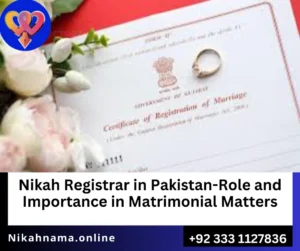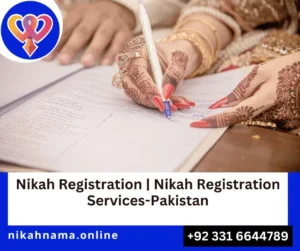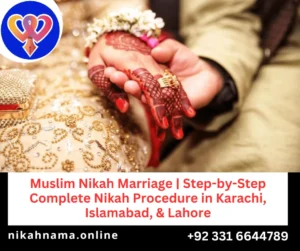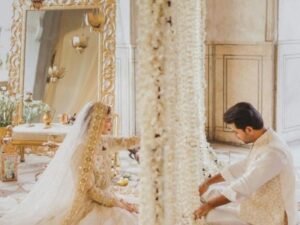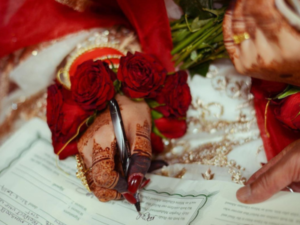Islamic Nikah-The Right Path for Couple Union
Islamic Nikah: Preserving The Divine Union
Understanding Islamic Nikah:
Marriage holds a profound significance in Islam, embodying spiritual, social, and legal aspects. Nikah, the Islamic marriage contract, symbolizes a sacred covenant between a husband and wife, rooted in Quranic teachings and Sunnah.
Islamic Nikah: Significance and Rituals
Meaning and Importance
Nikah stands as a solemn commitment, emphasizing companionship, love, and mutual respect between spouses. It’s regarded as an act of worship, fostering unity and harmony as ordained by Islamic teachings.
Traditional Ceremonies
The Nikah ceremony is imbued with rich traditions, including the recitation of Quranic verses, the giving of Mehr (dower), acceptance of marriage terms, and the presence of witnesses.
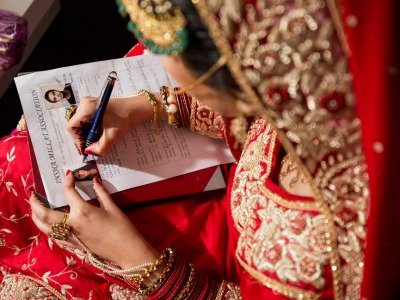
Islamic Nikah and Nikah Nama
Defining the Contract
The Nikah Nama serves as the formal contract, outlining the rights and responsibilities of both partners in the marriage. It includes details like names, signatures, conditions, and terms agreed upon by the couple.
Legal Requirements
Under Islamic law, the Nikah Nama is mandatory for the marriage to be recognized. It specifies essential elements like consent, Mehr, and conditions the bride and groom agreed upon.
Islamic Nikah: Islamic Principles and Marriage
Islamic Guidelines
Islamic teachings emphasize the sanctity of marriage, urging kindness, compassion, and understanding between spouses. The Nikah aligns with these principles, promoting mutual support and harmony in marital life.
Roles and Responsibilities
Islam defines the roles and obligations of spouses, emphasizing mutual respect, care, and support. Both partners are tasked with upholding their duties towards each other and the family.
Preparing for an Islamic Nikah:
Pre-Nikah Preparation
Before the Nikah, couples often discuss expectations, financial matters, and family life. Pre-nuptial agreements, if any, are considered within the scope of Islamic teachings.
Documentation and Procedures
The preparation involves collecting necessary documentation, meeting with the religious officiant, and completing legal formalities for the Nikah.
Conducting the Nikah Ceremony
Ceremonial Aspects
The Nikah ceremony typically occurs in the presence of family, friends, and witnesses. It involves reciting Quranic verses, accepting marriage terms, and praying for the couple’s future.
Officiating the Nikah
An Islamic scholar or a religious figure officiates the Nikah, guiding the proceedings and ensuring adherence to Islamic customs and principles.
Islamic Nikah: Legal Recognition and Registration
Nikah and Legal Validity
While Nikah holds religious significance, it requires legal recognition for state documentation. This recognition involves registering the marriage with relevant authorities to obtain a legal marriage certificate.
Registration Process
The registration entails submitting the Nikah Nama and completing official procedures as per state laws for the marriage to be legally recognized.
Islamic Nikah: Post-Nikah Support and Guidance
Marital Guidance
Following the Nikah, couples may seek guidance from Islamic centers or scholars for marital counseling, advice, and support.
Community Resources
Islamic communities offer resources and support networks for couples, aiding them in navigating challenges and seeking spiritual guidance for a harmonious marriage.

Islamic Nikah: Contemporary Challenges and Discussions
Adapting Traditions
In modern times, discussions emerge on adapting traditional practices within Islamic marriages while staying true to the essence of Nikah.
Contemporary Issues
Challenges such as cultural differences, evolving societal norms, and legal complexities in multi-cultural contexts are part of contemporary discussions around Islamic marriages.
Embracing the Sanctity of Islamic Nikah: A Lifelong Covenant Rooted in Love, Respect, and Shared Values
Islamic Nikah embodies the sanctity and beauty of marriage in Islam, symbolizing a lifelong commitment based on love, respect, and shared values.
Navigating Traditions: Rituals and Customs in Islamic Nikah
Islamic Nikah Customs
Islamic Nikah, the sacred marriage ceremony, is adorned with rich customs and rituals deeply rooted in Islamic teachings and traditions. These customs hold significant spiritual and cultural value, shaping the foundation of the marital union.
Pre-Nikah Engagement:
Prior to the Nikah, families engage in discussions regarding the union. It’s a time to exchange proposals, understand expectations, and honor traditions such as Istikhara (seeking God’s guidance) and the formal proposal known as Khitbah.
Financial Arrangements and Mehr
Discussions surrounding Mehr (dower) take place, emphasizing the financial rights of the bride. This stipulated gift from the groom to the bride is a fundamental aspect of the Nikah contract.
The Nikah Ceremony and Islamic Nikah
Rituals and Significance
During the ceremony, various rituals are observed. This includes the recitation of Quranic verses and prayers, the acceptance of marriage terms, the presence of witnesses, and the announcement of the marriage.
Exchange of Vows and Duas
The couple exchanges vows, expressing their commitment and dedication to each other. The officiant and attendees offer prayers and blessings for a blissful married life.
Importance of Mehr and Consent in Islamic Nikah
Mehr: A Symbolic Commitment
Mehr symbolizes the groom’s commitment and obligation towards the bride. It’s a testament to the financial security and honor afforded to the bride within the marriage contract.
Consent in Islamic Nikah
The Nikah is founded upon the principle of mutual consent, emphasizing the importance of the bride’s willingness and approval in the marriage.

Islamic Nikah: Role of Witnesses and Officiant
Witnesses in Nikah:
The presence of witnesses is crucial to validate the marriage contract. They attest to the mutual consent and acceptance of terms by the couple.
Officiant’s Role
The officiant, often an Islamic scholar or a religious figure, guides the ceremony, ensuring adherence to Islamic customs and principles while leading the proceedings.
Islamic Niakh: Post-Nikah Celebrations and Traditions
Celebrations and Feast
The Nikah ceremony is often followed by a celebratory feast (Walima), where family and friends gather to bless the newlyweds and share their joy.
Customs and Blessings
Blessings and prayers are extended to the couple, symbolizing the commencement of their journey as partners in life.
Adapting Traditions in Modern Context
Modern Perspectives
In contemporary times, some customs and traditions within Islamic Nikah ceremonies might adapt to align with modern sensibilities while preserving the core essence of the rituals.
Respect for Traditions
Despite modern adaptations, respect for traditional customs remains integral, ensuring the sanctity and beauty of the Nikah ceremony.
Preserving Sacred Customs:
Islamic Nikah customs and rituals are not just ceremonial; they encapsulate the essence of commitment, love, and spirituality within the marital bond. Upholding these traditions honors the sanctity and depth of this sacred union.
Islamic Nikah: Honoring the Eternal Bond of Islamic Nikah
The institution of Islamic Nikah stands as a testament to the enduring commitment between two individuals embarking on a shared journey guided by love, respect, and shared values. Rooted in the teachings of Islam, Nikah represents not just a legal contract but a spiritual covenant, emphasizing unity, companionship, and mutual support. It encapsulates the sanctity and beauty of marriage in Islam, weaving together traditions, rituals, and customs that transcend time and culture. As couples embrace this sacred union, may they find strength in the values Nikah upholds—forging a path of lifelong companionship, understanding, and unwavering devotion, guided by the blessings of love and faith.

